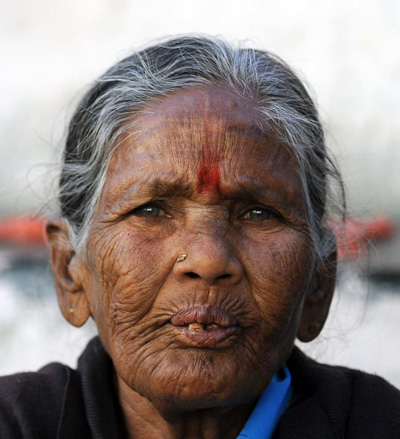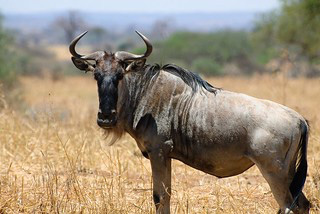Am I Worth Saving?
Introduction
Perceived herd immunity is not a feasible option. Virus can not be allowed a free run!
‘He will be dead by tonight’ explained our guide cum driver, Anthony, on seeing a single young wildebeest roaming through the Savannah grasslands of Masai Mara National Park in Kenya. The poor soul was separated from the herd, making him an easy bait for lions, cheetahs and even hyenas. After asking if we can save him, Anthony firmly replied ‘No, this is nature’s way of maintaining a balance.’
I never realized that the image of the lonely Wildebeest would come back to haunt me six years later. During a recent panel, a community medicine expert unabashedly announced that herd immunity is the only way to tackle Covid-19 for our resource deprived country. She proudly proclaimed, ‘Yes, we are likely to have ‘few’ deaths, but the savables will be saved’. Three out of the six panelists, including me, were over 60 years old and didn’t fit into her criterion. ‘Survival of the fittest and natural selection,’ were once confined to biology textbooks, but are now being casually used by many as a strategy to protect the economy.

In recent times, herd immunity has been mainly achieved through vaccination, like in the case of polio, influenza (flu), and smallpox. The Black plague and Spanish flu led to the loss of millions of lives, but took place in another century. The recent explosion in knowledge, technology and advancements in healthcare mean that every life can be saved in this day and age.
An Infection rate of 60%-70% to achieve herd immunity, is accepted by most as necessary, but there is a strange reluctance to acknowledge or accept the potential loss of lives. This requires a serious ethical re-consideration as even doctors are not allowed to condemn a single person to die, irrespective of their health condition. Health care workers in Italy, who were forced to selectively allocate the limited number of ventilators and ICU beds, reportedly required follow-up psychological support and counselling to overcome their grief.
The United Kingdom too ditched their initial herd immunity strategy, in favour of shielding their seniors to lower death rates in the country. Vulnerable and senior citizens are likely to come out of shielding only after virus is controlled or a vaccine is available.
Besides lack of evolved public healthcare system, India has high prevalence of lifestyle diseases even at a young age. These young individuals suffering from diabetes, blood pressure and heart diseases are at higher risk of a worse outcome from Covid infection, unlike their western counterparts.
In the absence of a uniform national approach, most cities have different infectivity rate. With economic inter-dependence and people’s movement, this will further delay effective protection that ‘herd’ immunity is presumed to provide. Additionally, behavioural changes (social distancing, hand hygiene measures) are likely to make herd immunity a long drawn-out affair. Even in Sweden, probably the only country with a self-proclaimed herd immunity strategy, infection rates in April end remained at 7% instead of the expected 40% even though 7.4% of infected persons succumbed to the virus. While the EU re-opened their borders after successful containment measures, Swedish citizens were excluded from travelling to the EU.
The long-term health impact of virus amongst recovered persons is only now being understood. Experts have found that even after months of recovering from Covid, many patients continue to require oxygen support (due to lung scarring) and are at a high risk of brain strokes & heart attack. If these early reports are true, any attempt at large scale population exposure to virus is fraught with the risk of undermining the health of millions.
The most significant scientific factor not in favour of ‘herd immunity’ is the possibility of viral mutation, thus exposing millions of Covid recovered persons to new viral attacks. Already, reports of Coronavirus mutations in USA are surfacing, challenging the effectiveness of natural or vaccine related acquired immunity.

Also, not all infected persons are developing antibodies or antibody levels are rapidly declining within 2–3 months. Though T-cell based immunity is being hypothesized as potential saviour, any attempt at herd immunity in the absence of scientifically established protective response is precocious & ignorant.
Lack of resources in developing countries should not be a justification for pursuing a herd immunity strategy. Sri Lanka, Thailand, Seychelles, Rwanda, Taiwan, China and other developing countries have overcome coronavirus with a definite containment strategy.
As we watch the pandemic unfold, survival rates are improving. New drugs and an improved understanding of the disease is changing infection outcomes. People who lost their near ones in the early months of the pandemic, may be left wondering if results could have been different with a little patience.
As a 3rd generation doctor trained to save every possible life, these epidemiological prophecies condemning million(s) of otherwise productive lives is NOT acceptable. ‘Every life matters’ is not only an empty slogan but forms the basic tenet of humanity.
I think back to the lost wildebeest in Kenya, which lost its protection as it accidentally separated from its herd, unlike a community/society which has (sub) consciously decided to let go of their ‘vulnerables’ in an attempt at self-preservation.
“By Dr Ramen Goel, MS, FRCS(Edin), Mumbai, India – ELSA Governor for India President, IAGES”







